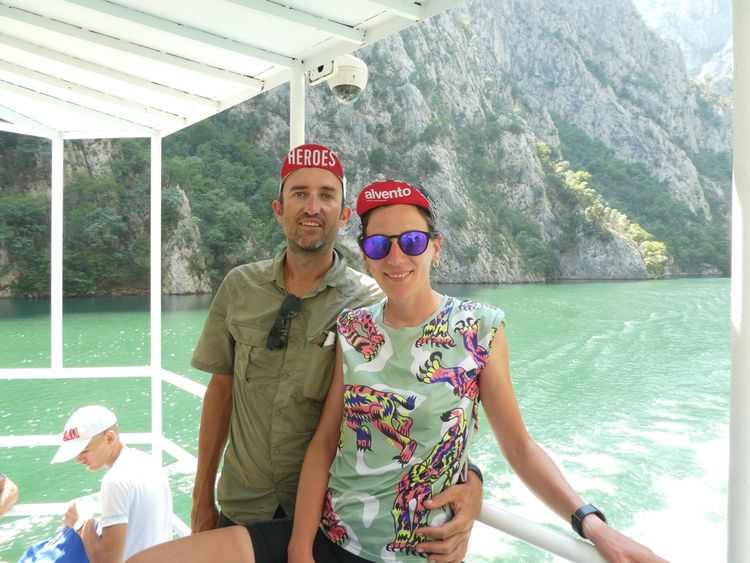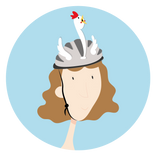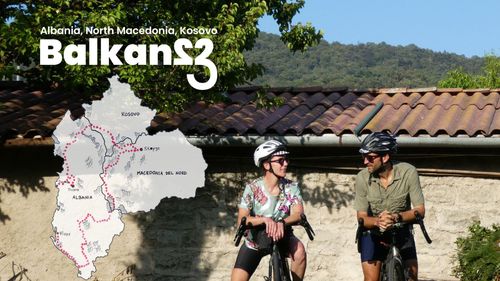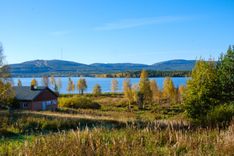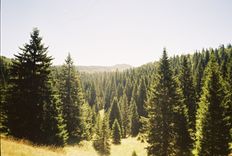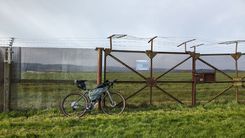August 2023. 19 days' journey, 1360 kilometres, almost 18,000 metres of positive altitude difference. Three countries crossed: Albania, Northern Macedonia and Kosovo. Two bikes and a tent. We are Raffaella and Paolo, a couple in everyday life, we have been cycling together on small and big trips since 2021.
After Balkan22 our summer 2022 trip from Italy (Trieste) to Montenegro via Slovenia, Croatia and Bosnia and Herzegovina, in August 2023 we decided to go further south. In short, we like the Balkans, it is that part of Europe that we feel so close and far away at the same time. From home you can easily reach it by train, yet to cross borders there are borders and the currency changes. A transit area between East and West since prehistoric times, the scene of ongoing religious and political disputes, it is an interesting territory to discover. And then there are the mountains (the term balkan comes from the Turkish word for 'mountain'), which on an August trip mean shelter from the summer heat.
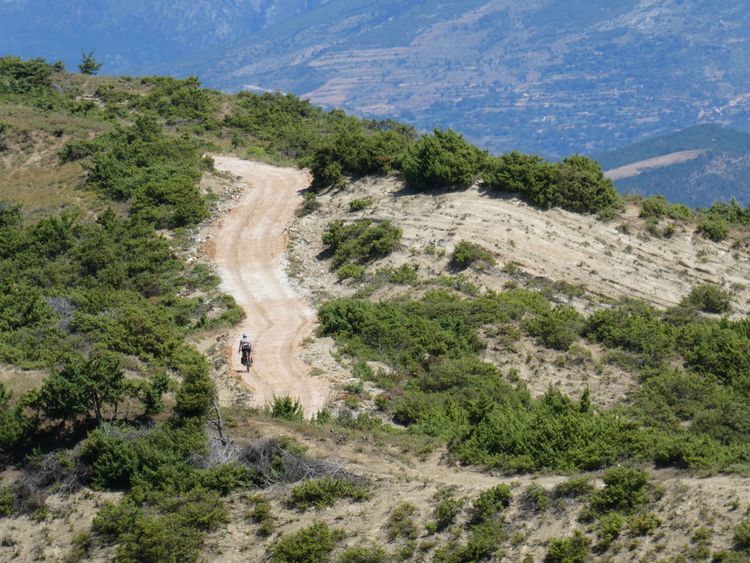
No official tracks, we created the path from scratch on our own time, combining the places we wanted to visit. We don't have a tight schedule to stick to: there is a canvas, but the track can change from day to day depending on how we are, unforeseen events, traffic, the road surface.
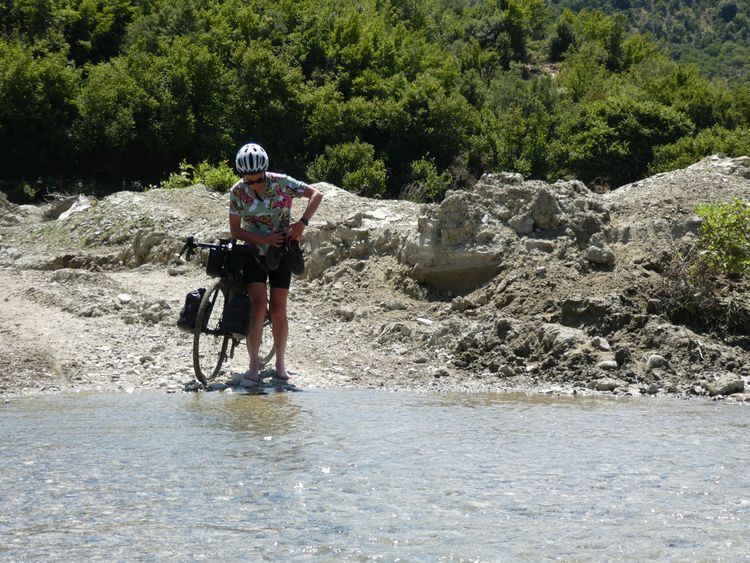
The bike trip starts in Albania, Valona, where we disembark one humid August morning after a day of travelling by train to cross Italy from north to south and a night on a ferry to sail the Adriatic Sea from west to east.
Breakfast, currency exchange and purchase of an Albanian sim card. We are ready to leave.
The first two days we travel along the south coast, past Saranda, to the border with Greece. In August, the coast is not a good place to cycle: it is very crowded with tourists travelling by car. When we can, we choose side roads, but sometimes there is no choice: forced cohabitation.
On the plus side, the sea, always on the right, is so intense blue that it is a pleasure to look at it. Often seen from above -as from the Llogara Pass- at the end of the day, it gives us refreshment with its crystal-clear water.
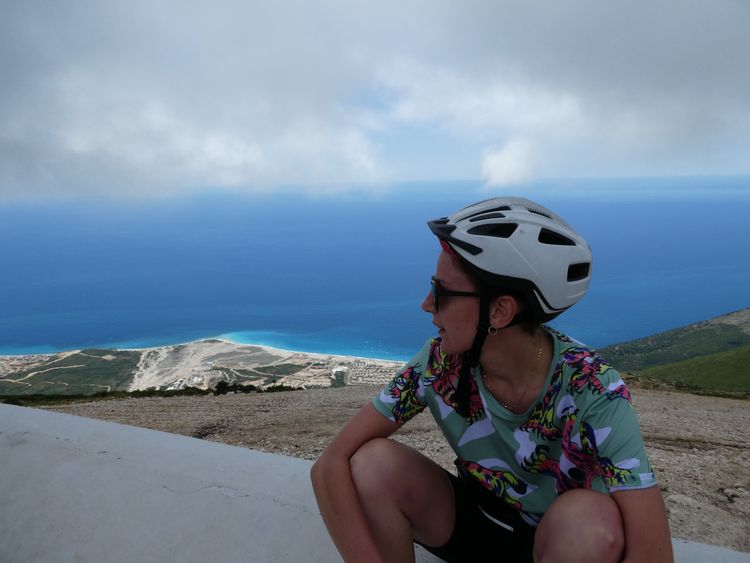
Beautiful, but in August in small doses: on day three we leave the sea and head for Gjirokaster.
Our only stop is at the unmissable Blue Eye, a karst spring that forms a bubbling pool of water that in its colours resembles an iris. Fortunately we get there early, because the place is very busy. We take the opportunity to freshen up our feet and head before tackling the only climb of the day.
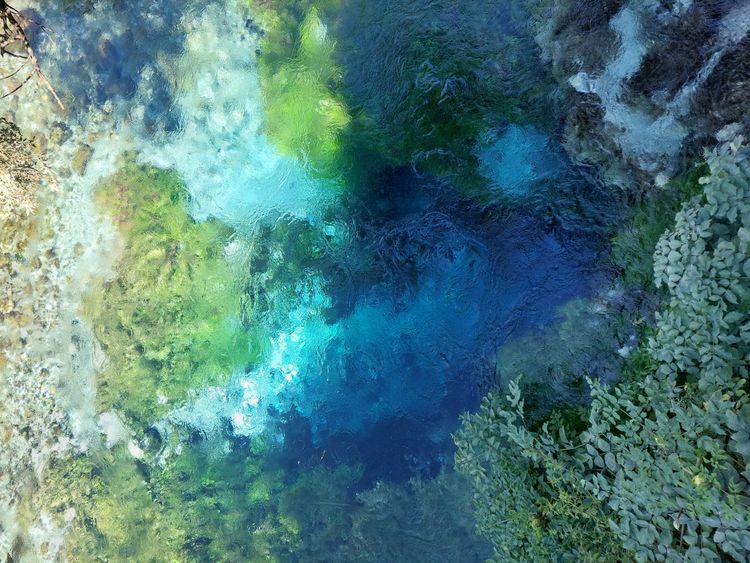
After Gjirokaster, we pedal through the National Park of Zagoria and arrive in Berat via a road which, with good reason, anyone would advise against, but we stubbornly take it anyway. The result is that it takes us three and a half hours to cover 25 km, including climbs and, above all, very difficult descents.
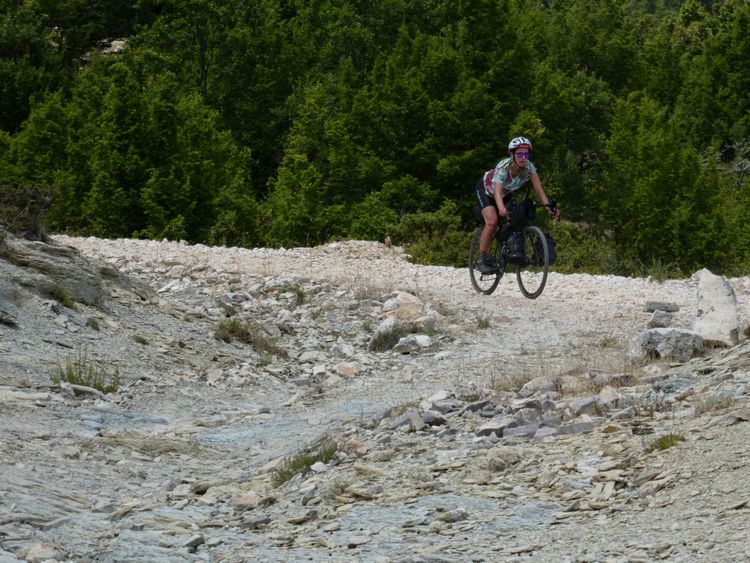
The reward is Berat, UNESCO World Heritage Site, city of a thousand windows of Ottoman houses, where we have a hearty dinner of seasonal vegetables such as aubergines and stuffed peppers and the fergese vere, a sauce made from tomatoes, peppers and salted ricotta cheese that will become our favourite dish of the trip.
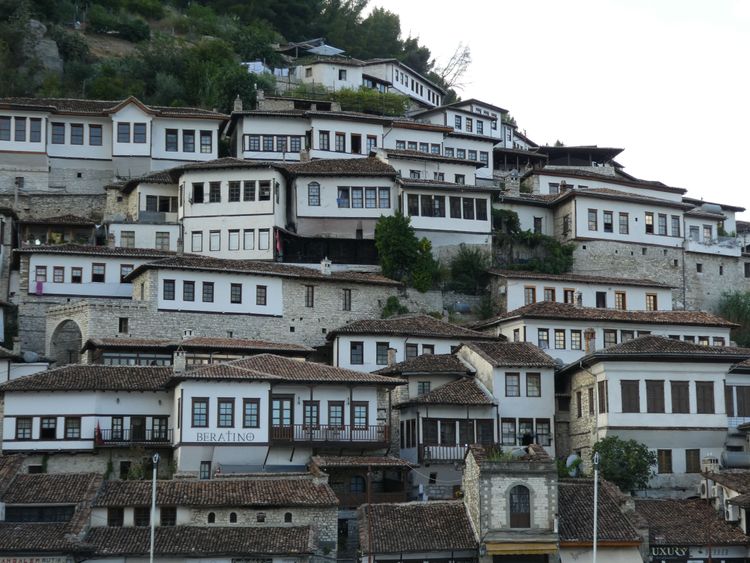
We reach Lake Ohrid on day six. We are still in Albania where they actually call it Pogradec Lake. Albania in fact shares it with Macedonia: the city of Ohrid lies over there, while Pogradec lies over here.
To do no one any wrong, we stop in both towns circumnavigating the lake. In Pogradec we stop for a nice mid-morning breakfast. In Ohrid, we arrive there at lunchtime after crossing the border and, for the first time since our departure, we take a room. We want to stop and visit, but there is no campsite nearby.
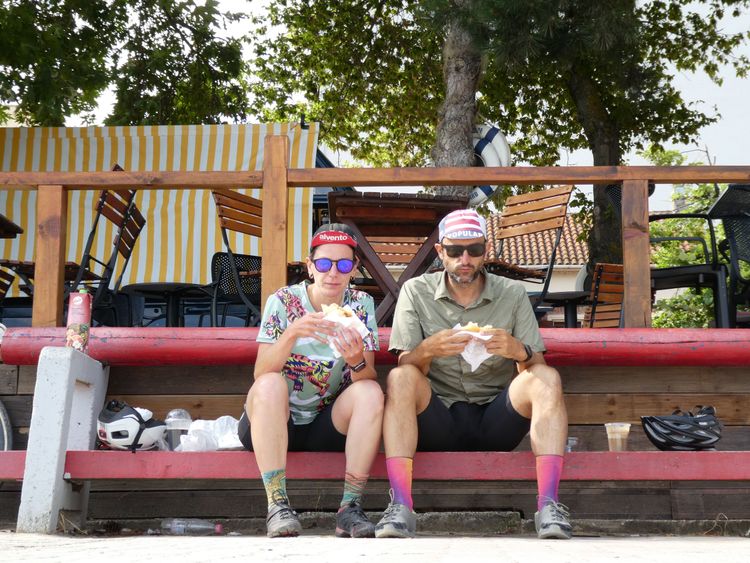
From Lake Ohrid our itinerary through Macedonia runs along the Black Drin River, then the Lake Debran and finally the Radika Stream. We ride through the Mavrovo National Park to Gostivar and from there we reach the capital, Skopje, where we treat ourselves to a day's rest.
We visit the city, but without excessive sightseeing. In the afternoon, we take a nap and then run small errands, such as picking up clean, perfumed clothes from the laundry.
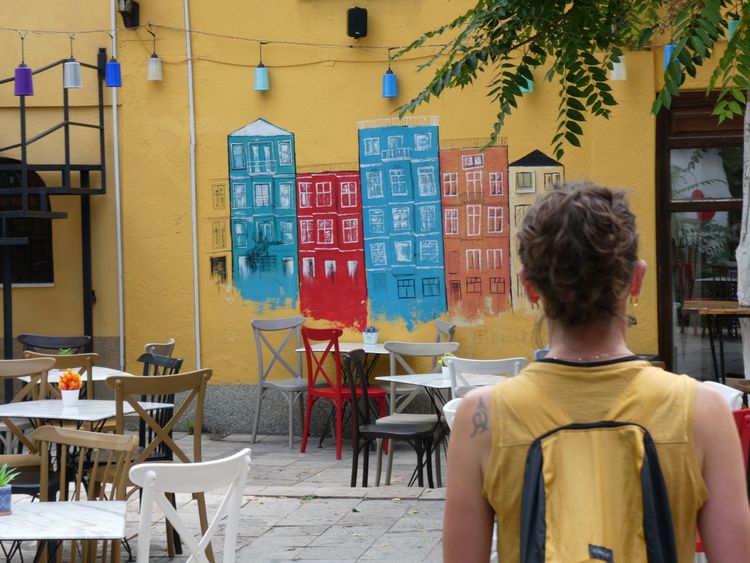
New day, new border: from Macedonia we go to Kosovo.
A moderately demanding, but beautiful stage, which means that you don't feel the fatigue - at least not as long as you pedal. We cross the Sharr Mountains National Park, from Brezovica to Prevallë and from there we descend to Prizren.
The city is worth a stop. It is the second largest city in Kosovo and its cultural capital. It overlooks the Bistrica river that divides the old and new city.
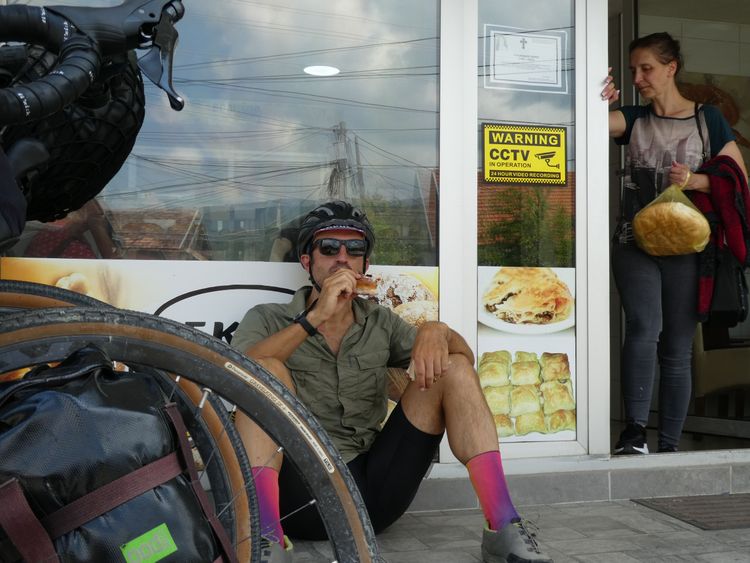
The journey through Kosovo is short. After Gjakova, where we treat ourselves to a burek, we return to Albania. Small but beautiful diversions to the Valbona National Park crossed by the crystal-clear river of the same name. Hot ascent to the Albanian Alps where, having reached the campsite, we cook ourselves dinner under a starry sky such as we rarely see.
Day 14 is different from usual. Our bike trip is interspersed with a long stretch of boat trips on Lake Koman, an artificial lake on the river Drin.
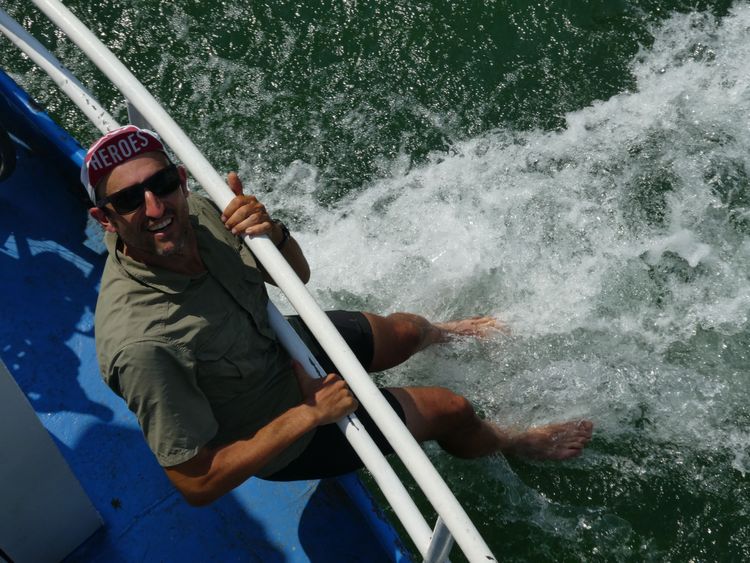
We have no choice, for 30 km there is no road in that valley, we have to take a ferry. Two and a half hours in the company of Gennaro and Wendy, two bike travellers we had met a few days earlier on the way out of Skopje, whom we met again at the ferry. He is Italian, she is Canadian. They met in Australia where their journey started. They have been cycling for two years and are heading for Italy.
We get on well with Gennaro and Wendy, we decide to slow down and cycle with them for a couple of days. We spend an unforgettable evening in Shköder, hosted by Chuck and Susan, a couple of American travellers who live there and offer hospitality thanks to the Warmshowers platform.
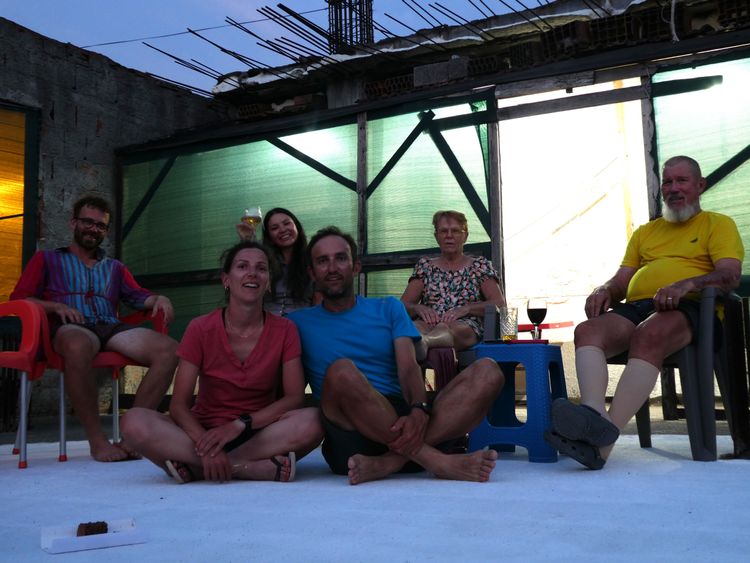
Our roads diverge, their journey continues north, to Montenegro. We turn south, we head to Tirana and then Durrës.
In two days we reach the capital. We get there not by the direct route, but by stretching and complicating our lives. These are the last days and we want to enjoy them to the end.
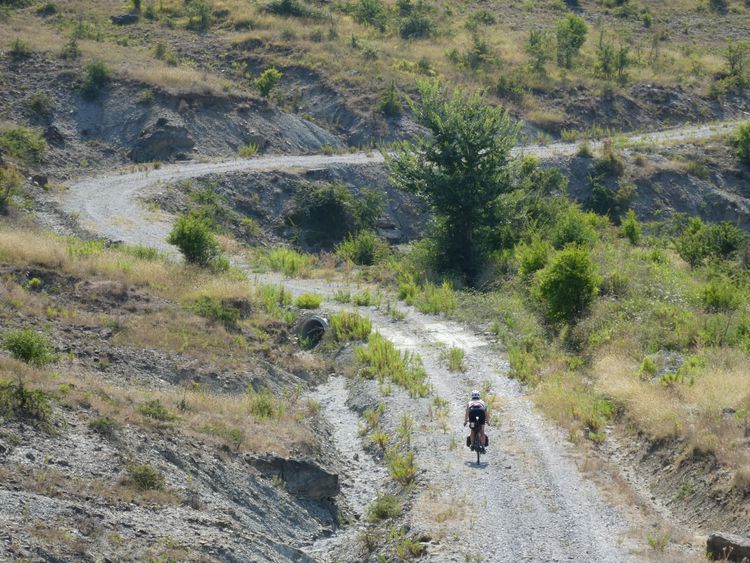
We pass through the Qafë Shtama National Park: mountains that are sponges laden with water and slopes full of pine and beech trees. The descent from the park becomes complicated when we encounter a landslide: we get into a labyrinth of roads that are impossible to pedal and have no exit. Patience put to the test, but eventually after several attempts we find our way out.
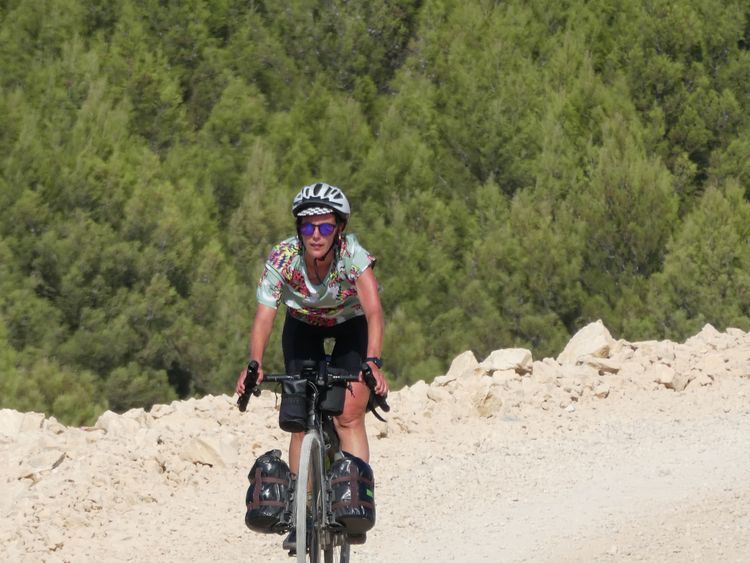
The entrance to Tirana is better than we expected. Heavy traffic, but every now and then we hit a few stretches of cycle path. We give ourselves half a day to visit it: Scanderberg Square, the Et'hem Bey Mosque, the clock tower, the Hoxha pyramid, the Blokku quarter.
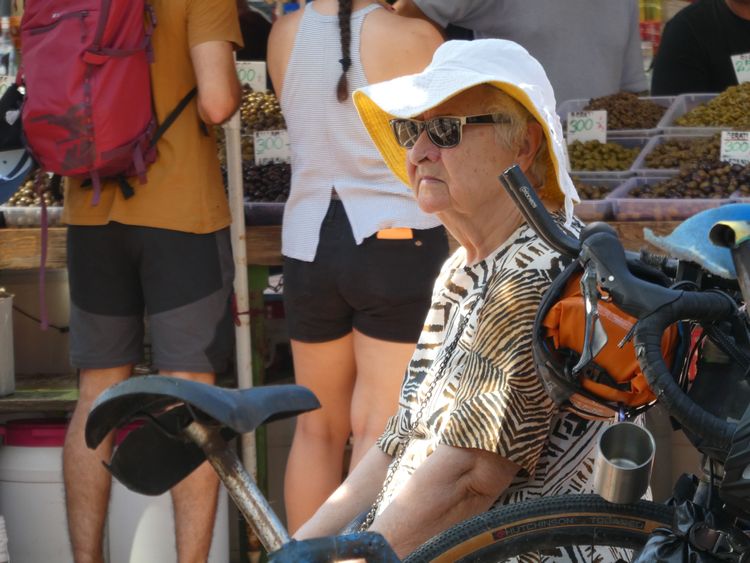
The last day is simple: we cycle from Tirana to Durres where in the evening we book the ferry back to Italy. But first we treat ourselves to a few hours on the beach, a swim and a nice dinner.
A non-trivial journey that combined scenery, culture and hard work, diverse and colourful cuisine, kind encounters and welcoming people. The return ferry caressing the waves makes the messy but still sharp memories of an unforgettable journey swirl in my head.
